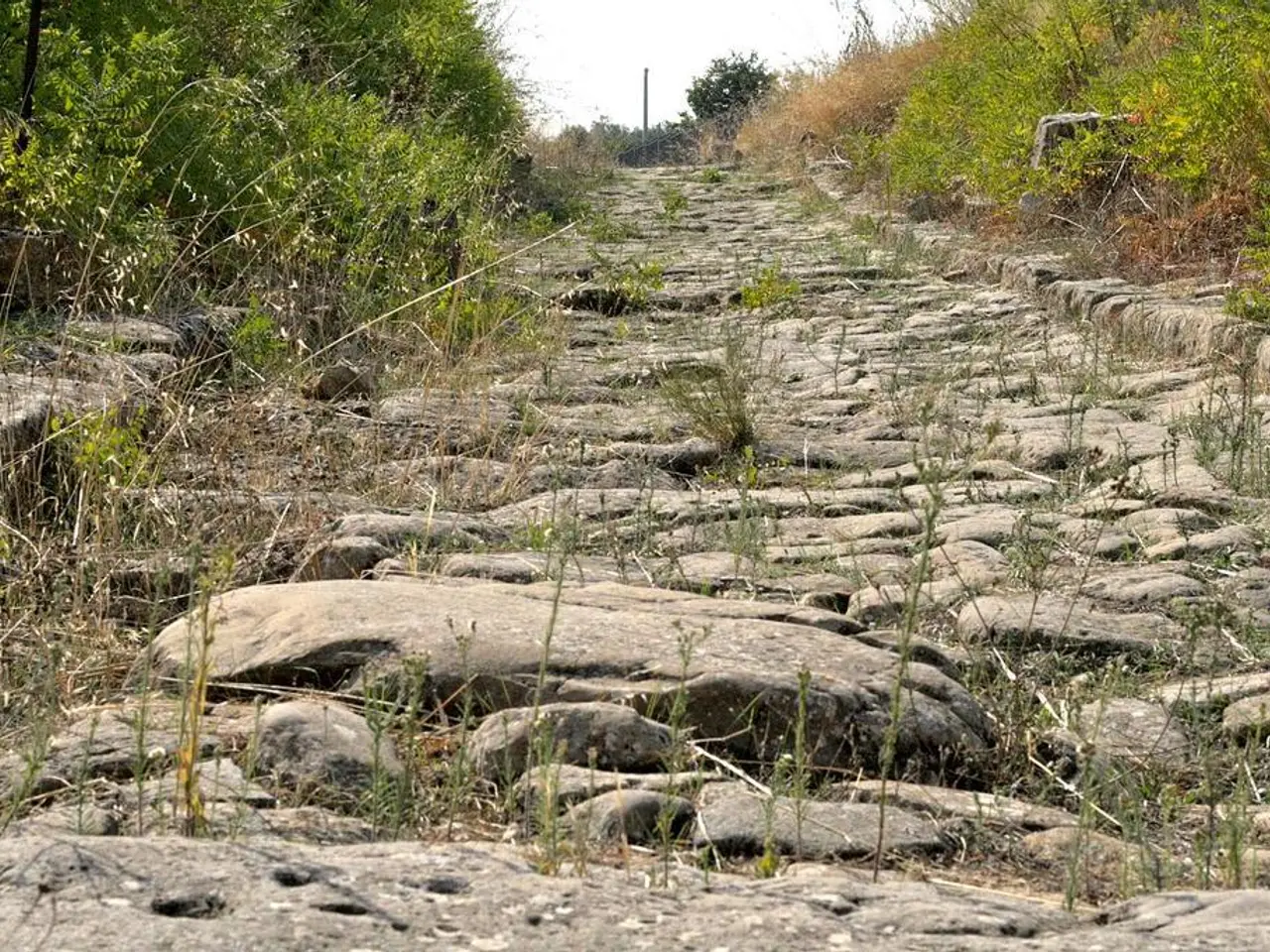Inspiring Outdoor Learning Strategies Incorporating Philosophy to Fuel Awe and Curiosity:
In an innovative approach to children's education and environmental stewardship, various resources and examples are being used to integrate ancient philosophies with outdoor activities. This unique method creates powerful learning opportunities that foster ecological awareness, ethical reflection, and a personal connection to nature.
One such approach is the Montessori-inspired 'First Great Lesson - Coming of the Earth'. This program combines scientific understanding of Earth’s formation with philosophical reflection, encouraging children to connect emotionally and ethically to the planet. Activities include modeling Earth’s landforms using playdough and natural materials, fostering wonder and ownership. The program also prompts philosophical discussions about our place in the universe and environmental responsibility, nurturing empathy and critical thinking about nature’s interconnections.
Neohumanist education emphasizes meaningful outdoor experiences to promote health, care for nature, and moral development aligned with ancient holistic worldviews. Examples include nature-based schools that engage children with local ecosystems through hands-on projects such as creek restoration and animal observation, fostering a personal relationship with the land. This approach aligns with values found in ancient philosophies that respect harmony between humans and the environment.
Ancient Chinese education stressed moral sensitivity, harmonious human relations, and ritual practice, which can be translated into outdoor activities involving group rituals, music, and ethical reflections in natural settings. Similarly, pre-Columbian civilizations like the Maya and Incas integrated cultural conservation and moral training, which can inspire place-based outdoor learning that includes storytelling and character development linked to local nature and heritage.
Practical ideas for outdoor education include using philosophical questioning to spark curiosity and reflection while children engage with nature. For example, posing open-ended questions about fairness, beauty, interdependence, and stewardship as children explore natural spaces encourages a deeper understanding of ancient philosophical principles such as balance, respect, and mindfulness within the environment.
Incorporating Eastern philosophies like Zen walking meditation and Taoist principles into outdoor learning experiences can enhance mindfulness and awareness of natural rhythms. Socratic questioning during nature walks can lead to deep inquiry about the natural world. Weather changes in the garden can teach children resilience and the distinction between circumstances and responses.
Introducing Rights-Based Ethics through conversations about whether animals and ecosystems possess inherent value beyond their usefulness to humans can foster respect and intrinsic worth. Gardening can anchor children in the present moment and teach present-moment awareness. Mindfulness and Stoic practices can be introduced in garden settings.
Applying Stoic resilience through physical challenges and Aristotelian virtues during teamwork scenarios to outdoor learning experiences, building character and fostering philosophical understanding. Discussing Moral Responsibility Toward Nature encourages children to consider their personal role in protecting natural spaces, such as hiking trails or plant life, from damage.
Encouraging critical thinking about natural phenomena helps children develop hypothesis-testing skills. Philosophical discussions outdoors can make complex ideas accessible to young minds. Contemplating Life's Big Questions in Natural Settings, such as discussions about infinity, purpose, and significance in the grand scheme of existence, can be sparked by natural wonders.
By blending ancient philosophies with outdoor activities, we can create a holistic approach to education that nurtures a deep understanding of our place in nature and our responsibility towards the environment. This innovative method not only fosters ecological awareness but also instills lasting respect for the Earth.
- This unique educational approach, inspired by Montessori, combines the scientific understanding of Earth’s formation with philosophical reflection, creating a program called 'First Great Lesson - Coming of the Earth'.
- Neohumanist education encourages meaningful outdoor experiences that promote health, care for nature, and moral development, aligning with ancient holistic worldviews.
- Ancient Chinese education valued moral sensitivity, harmonious human relations, and ritual practice, ideas that can be translated into outdoor activities involving group rituals, music, and ethical reflections in natural settings.
- Incorporating Eastern philosophies like Zen walking meditation and Taoist principles into outdoor learning experiences can enhance mindfulness and awareness of natural rhythms.
- Discussing Moral Responsibility Toward Nature with children can encourage them to consider their personal role in protecting natural spaces, such as hiking trails or plant life.
- By blending ancient philosophies with outdoor activities, we can create a holistic approach to education that fosters a deep understanding of our place in nature and our responsibility towards the Earth, instilling lasting respect for the Earth.




